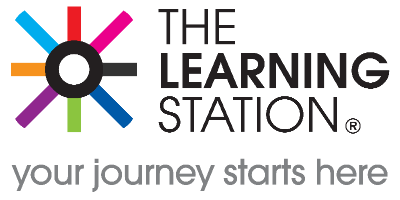If you are not too sure what the difference is between Alzheimer's disease and dementia, then not to worry, you're in the right place. And you're not alone.
In this article, we provide a simple explanation so you can understand the difference.
What is Dementia?
Dementia is not classed as a disease in its own right. The term 'dementia' is referred to a group of symptoms which include problems in thinking, problem solving, memory, perception and language.
Dementia can be caused by a number of different diseases which affect the brain, with Alzheimer's being one of them (and one of the most common). Dementia leads to a cause of loss of nerve cells.
Related Learning: Level 2 Diploma in Care (RQF)When someone receives a dementia diagnosis, one must learn what type of dementia they have. But unfortunately, this is not always the case because in some cases, the word 'dementia' is used to describe the symptoms the patient may have. Now there are a number of causes of dementia, including:
- Vascular dementia: This is where a lack of oxygen to the brain causes the nerve cells to die. This can either be caused by a stroke, through a mini-series of strokes or via a disease of small blood vessels in the brain.
- Dementia with Lewy bodies: Lewy bodies are abnormal structures which form in the brain that causes damage or death of nerve cells.
- Mixed dementia: Consists having more than one type of dementia accompanied by a mixture of symptoms.
- Frontal temporal dementia: This is where clumps of abnormal protein form on the front or side parts of the brain, causing the death of nerve cells.
The symptoms of someone with dementia depends on the damaged parts of the brain and the disease causing dementia.
Dementia is a progressive disease, meaning it will get worse over time.
What is Alzheimer's Disease?
Alzheimer's is a physical disease which affects the brain. Caused by abnormal structures called “plaques” and “tangles” that build up inside the brain. These structures disrupt how the nerve cells operate and communicate with each other, which causes them to eventually die. Also, there is a shortage of important chemicals in the brain, which affect how the messages are transferred around the brain.
In the early stages of Alzheimer's, patients will show signs of mild memory, which begin gradually. The patient will have difficulty recalling some recent events or information. Other notable symptoms include struggling with finding the right words, difficulties in solving problems and having a hard time to find the right words.
Similar to dementia, Alzheimer's is progressive and will get worse over time. Patients will eventually show severe signs of problems with memory loss, reasoning, communication and orientation. The patient will require more support as the disease progresses.
Unfortunately, there is no cure for Alzheimer's but there are treatments which can slow down the progression and ease the symptoms.
Related Learning: Level 3 Diploma in Adult Care (RQF)What is the Outlook for People with Dementia vs. People With Alzheimer's?
For dementia, the outlook for people depends on the cause of dementia. Most types of dementia are irreversible but there are treatments that can slow down the progression.
As for Alzheimer's, it is terminal illness and no cure is currently available. Depending on how the patient responds to treatment, the average person diagnosed with Alzheimer's has a predicted lifespan of 4 to 8 years. Some people can live with Alzheimer's for up to 20 years after diagnosis. But again, this all depends on how one responds to treatment.
How Can The Learning Station Help?
To ensure both patients of Alzheimer's and dementia get the highest possible quality of life, they need access to the best care.
If this article has inspired you to help those in need, then you should consider a career in health and social care. The Learning Station, a London-based training provider, has helped many individuals pursue a career in health and social care. All of our health and social courses are taught through online distance learning, where you can learn at your own time and at your own pace.
For more information on how The Learning Station can help, please contact our centre on 020 8342 7210



 Student Login
Student Login My Account
My Account